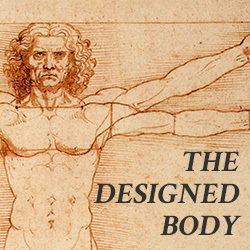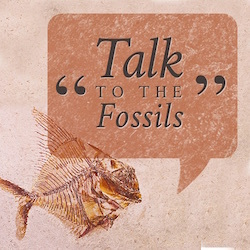Discovery Institute's Blog, page 147
July 10, 2015
The Dilution of Human Dignity

The term "human dignity" -- properly understood -- embodies the objective principle of equal and intrinsic moral worth of every human being. These days, it is too often conflated with subjective notions of behavior, aesthetics, and now, a newly coined constitutional right to self-identity.
Clarence Thomas made the point in his dissent on Obergefell v. Hodges that whatever laws exist, abuses that take place, and/or evils are imposed, our human dignity remains indissolubly intact. George Takei...
Evolution's Grand Challenge

Editor's note : We are delighted to welcome Steve Laufmann as a new contributor. Mr. Laufmann is a consultant in the growing field of Enterprise Architecture, dealing with the design of very large, very complex, composite information systems that are orchestrated to perform specified tasks in demanding environments.
In a recent ENV article, mathematician Granville Sewell asked an intriguing question:
In the current debate between Darwinism and intelligent design, the strongest argument made b...
July 9, 2015
ENCODE, Evolution, and the Percentage of the Genome That's Functional

ENCODE researchers got together in Potomac, MD, from June 29-July 1 for the ENCODE 2015: Research Applications and Users Meeting. For those who don't recall, ENCODE (Encyclopedia of DNA Elements) is a years-long research project involving a consortium of hundreds of international scientists studying functionality in noncoding DNA in the human genome. Apparently some of those researchers are backing away from ENCODE's initial claims that 80 percent of the human genome is functional, and now c...
Cardiovascular Function: The Heart Follows the Rules

Editor's note : Physicians have a special place among the thinkers who have elaborated the argument for intelligent design. Perhaps that's because, more than evolutionary biologists, they are familiar with the challenges of maintaining a functioning complex system, the human body. With that in mind, Evolution News & Views is delighted to present this series, "The Designed Body." Dr. Glicksman practices palliative medicine for a hospice organization.
 The body is made up of atoms and molecules...
The body is made up of atoms and molecules...
Listen: Can We Rely on Human Reason?

On a new episode of ID the Future, Casey Luskin interviews Discovery Institute Center for Science & Culture Fellow Nancy Pearcey. Discussing her new book, Finding Truth: 5 Principles for Unmasking Atheism, Secularism, and Other God Substitutes, Pearcey highlights contradictions in evolution's claims about human reason.
If neo-Darwinian theory postulates that man's knowledge is not necessarily true, but simply a product of natural selection, how can it also claim that the idea of God is a mi...
An Essential Prediction of Darwinian Theory Is Falsified by Information Degradation

Editor's note: We are delighted to welcome Kirk Durston as a new contributor. Dr. Durston is a scientist, philosopher, and clergyman with a PhD in Biophysics, an MA in Philosophy, a BSc in Mechanical Engineering, and a BSc in Physics.
I was struck, but not surprised, by a statement made recently by Neil Turok, Director of the Perimeter Institute for Theoretical Physics here in Waterloo, Ontario. Speaking of the apparent collapse of evidence for a critical component of the Big Bang theory, he...
July 8, 2015
Listen: Limits to Self-Organization

On this episode of ID the Future, Casey Luskin interviews University of British Columbia philosopher Richard Johns about his paper in the journal Synthese, "Self-organization in dynamical systems: a limiting result."
In the paper, Dr. Johns argues that there are limits to the complexity of structures that can be produced by self-organization. Johns shows that Darwinian evolution is actually a type of a self-organizing process, and that it too is limited in the types of biological structures...
"Biological Colonialism" Bites Back

I coined the term "biological colonialism" to describe the practice of well-off Westerners (and others) who travel to very poor countries to exploit the destitute for their body parts and functions.
Thailand was one major port of call for treating humans as a copper mines or timber forest. Then, an Australian couple abandoned their biological baby born of a surrogate because he had Down syndrome, leaving the baby in Thailand.
The Thai government cracked down and now another case has come to...
The Fossils Speak, but Hardly with One Voice
Editor's note : We are delighted to inaugurate a new series, "Talk to the Fossils," by our friend and colleague Denyse O'Leary. See here for her Introduction.
 University of Chicago biochemist James Shapiro, not a design theorist, offers in one of his lectures four kinds of rapid, evolutionary change that Darwin "could not have imagined": horizontal DNA transfer, symbiogenesis, genome doubling, and built-in mechanisms of genome restructuring. His approach is in sharp contrast to the "defend Da...
University of Chicago biochemist James Shapiro, not a design theorist, offers in one of his lectures four kinds of rapid, evolutionary change that Darwin "could not have imagined": horizontal DNA transfer, symbiogenesis, genome doubling, and built-in mechanisms of genome restructuring. His approach is in sharp contrast to the "defend Da...
Evolution: The Fossils Speak, but Hardly with One Voice

Editor's note : We are delighted to inaugurate a new series, "Talk to the Fossils," by our friend and colleague Denyse O'Leary. See here for her Introduction.
 University of Chicago biochemist James Shapiro, not a design theorist, offers in one of his lectures four kinds of rapid, evolutionary change that Darwin "could not have imagined": horizontal DNA transfer, symbiogenesis, genome doubling, and built-in mechanisms of genome restructuring. His approach is in sharp contrast to the "defend Da...
University of Chicago biochemist James Shapiro, not a design theorist, offers in one of his lectures four kinds of rapid, evolutionary change that Darwin "could not have imagined": horizontal DNA transfer, symbiogenesis, genome doubling, and built-in mechanisms of genome restructuring. His approach is in sharp contrast to the "defend Da...
Discovery Institute's Blog
- Discovery Institute's profile
- 15 followers



